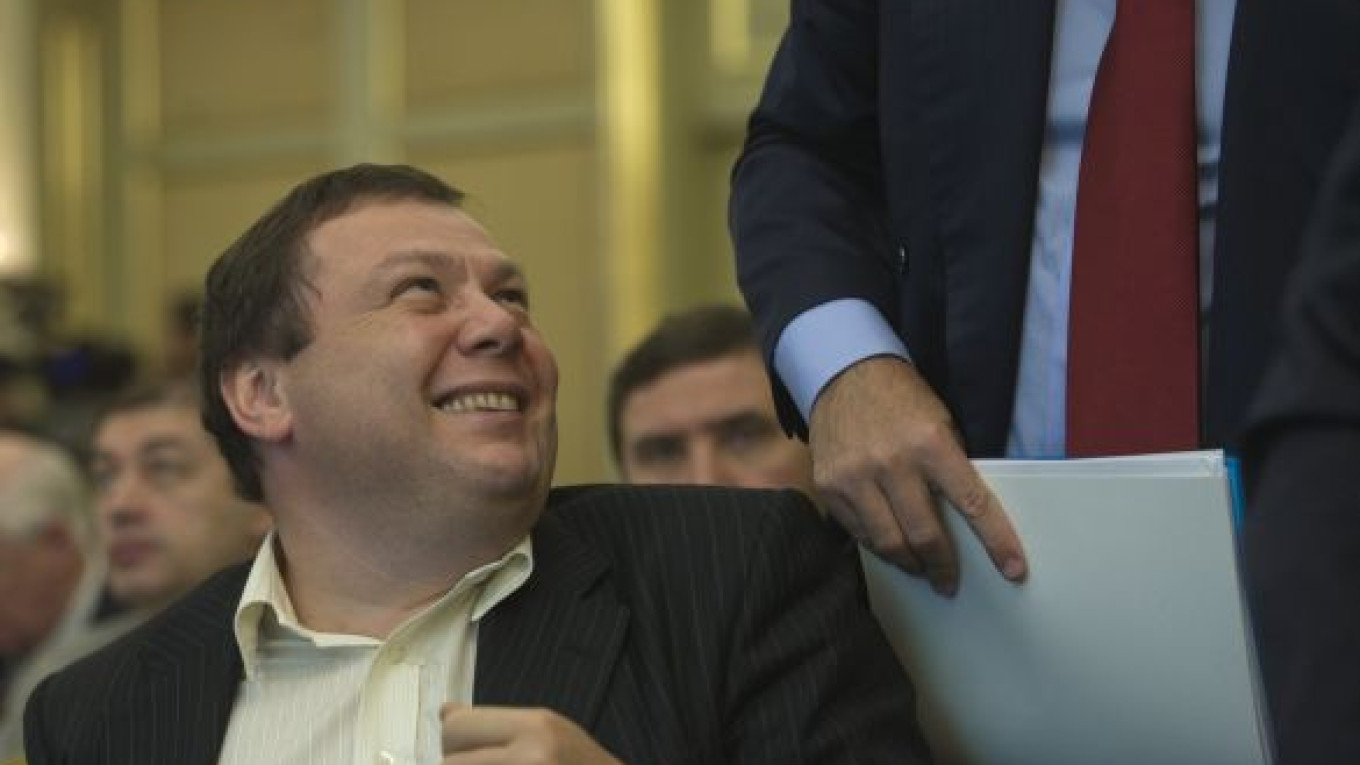TNK-BP wants to change its strategy in Iraq and grow internationally to produce no more than half of its oil in Russia, executive chairman Mikhail Fridman said in a recent interview.
He added that the Russian-British joint venture was ready to buy assets from BP and will consider the issue at a board meeting later this month.
Fridman said TNK-BP is interested in investing in Iraq and that AAR, a Russian partnership that holds 50 percent of TNK-BP, is planning to sell its investment in the Kurdistan region of northern Iraq in order to clear the way for participating in deals in the rest of the country.
Fridman would eventually like to see TNK-BP grow internationally to a size where Russia accounts for 50 percent or less of production, but concedes that this goal will not be achieved for many years.
Fridman, Russia’s third-richest man and head of Alfa Group, whose businesses range from banking to mobile phones to oil and gas, said the Russian shareholders’ relationship with BP has changed since a dispute in 2008 came close to ending the partnership. Bob Dudley, who headed TNK-BP at the time and was forced to leave Moscow, takes the helm at London-based BP next month. Dudley and Hayward recently met Fridman in his office, the Russian billionaire said.
“We didn’t think we should be a BP branch,” Fridman, who is also TNK-BP's interim chief executive officer, said in an interview at his Moscow office. “TNK and BP had an intense dispute. It’s over.”
Fridman said the company is ready to buy fields in Venezuela, Vietnam and other? countries, while BP is selling assets to cover costs for the Gulf of Mexico spill.
TNK-BP, an equal partnership between London-based BP and a group of Russian billionaires, should “expand broadly in the world,” Fridman said. BP “has no need to sell to a competitor and make them stronger.”
The board will consider buying BP assets at the end of the month. The meeting will be the first to include Tony Hayward, appointed as a director of TNK-BP after he resigned as BP’s chief executive officer because of the U.S. spill. BP is selling $30 billion of oil and gas production assets over the next 18 months.
Talks to buy assets in Venezuela and Vietnam are furthest along, TNK-BP chief financial officer Jonathan Muir said in an interview. The company is also looking at BP assets in North Africa, he said. BP has production in Algeria and Egypt and exploration acreage in Libya.
In Venezuela, BP has stakes in the Petroperija and Boqueron oil fields as well as the Petromonagas heavy oil-upgrading project, which produces 110,000 barrels of oil a day, according to BP’s web site. Bill Schrader, TNK-BP’s chief operating officer, said the heavy oil unit would fit well with a TNK-BP investment in a planned Venezuelan heavy oil development called Junin 6.
ING Wholesale Banking values BP’s Venezuelan assets at about $850 million.
BP also plans to sell a stake valued at $1 billion in the Nam Con Son gas project in Vietnam.
TNK-BP, Russia’s third-largest oil producer behind state-owned Rosneft and LUKoil, accounts for about a quarter of BP’s output and a fifth of reserves.
TNK-BP signed a contract to supply Russian ESPO crude oil blend to Vietnam, the company said Monday.
TNK-BP said the first cargo of 100,000 metric tons will load in November in the Pacific Ocean port of Kozmino, the outlet for the blend, as a part of a deal with Vietnamese state corporation PetroVietnam.
According to a loading schedule, Kozmino will load 4.09 million metric tons of crude from the East Siberia-Pacific Ocean Pipeline crude in the fourth quarter.
"We are committed to establishing a long-term presence in Vietnam and to pursuing joint projects in the upstream and refining sectors," Maxim Barsky, deputy chairman of TNK-BP's management board, was quoted as saying in a statement issued by the company.
Russian companies regularly exploit Communist-era ties with Vietnam in business.
Zarubezhneft, a state oil company, is developing fields there. In the telecoms sector, VimpelCom, a cell phone operator that has a shareholder in common with TNK-BP, recently expanded there.
(Bloomberg, Reuters)
A Message from The Moscow Times:
Dear readers,
We are facing unprecedented challenges. Russia's Prosecutor General's Office has designated The Moscow Times as an "undesirable" organization, criminalizing our work and putting our staff at risk of prosecution. This follows our earlier unjust labeling as a "foreign agent."
These actions are direct attempts to silence independent journalism in Russia. The authorities claim our work "discredits the decisions of the Russian leadership." We see things differently: we strive to provide accurate, unbiased reporting on Russia.
We, the journalists of The Moscow Times, refuse to be silenced. But to continue our work, we need your help.
Your support, no matter how small, makes a world of difference. If you can, please support us monthly starting from just $2. It's quick to set up, and every contribution makes a significant impact.
By supporting The Moscow Times, you're defending open, independent journalism in the face of repression. Thank you for standing with us.
Remind me later.


